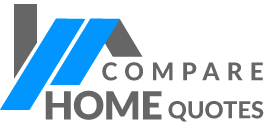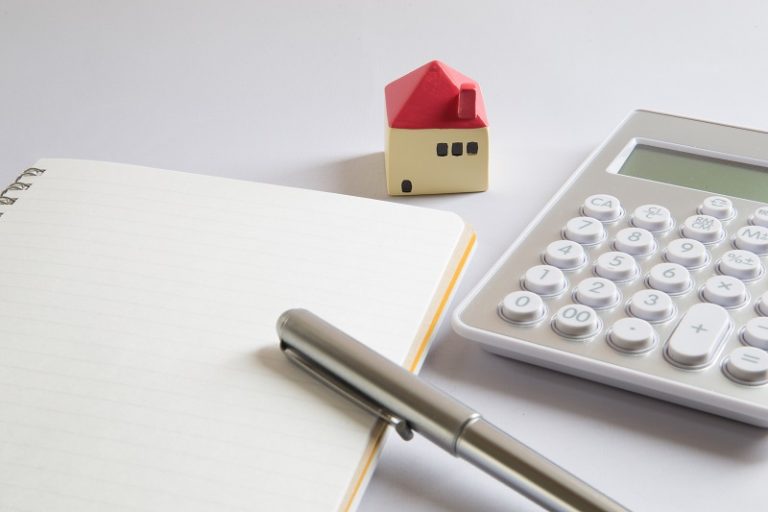
If you are planning to buy a house, you must know all the expenses for each stage leading to the turn-over of the house keys.
A home purchase is probably the most expensive and largest investment you will make in your lifetime. It is best to be prepared for all the associated costs because you want to ensure the successful completion of the project and have enough savings left after buying the house.
Preparing your budget well before the purchase will ensure you are not in the poor house after you buy your home.
Take a look at each of them before beginning the home purchase.
By being well-informed of the actual cost of buying your home, you can better prepare yourself.
The list of fees when buying a house
Avoid unpleasant surprises when buying a house such as sudden expenses you didn’t know about.
Estimate and calculate additional costs related to purchasing a property.
To make sure you are ready to pounce on your dream home as soon as you find it, check the things you need to have.
Expenses for buying a house: the down payment
When you buy your house, you will need to make a down payment of 20% or more based on the selling price.
However, the CMHC allows you to buy your new home by paying only 5% to 20% of the value of your home, provided that you obtain mortgage insurance to protect your lender.
If you want to know how you can pay less for your down payment, look at the requirements below to be eligible.
There are certain requirements to satisfy to qualify for mortgage insurance:
- The property must be located in Canada;
- The maximum price of the property for CHMC-insured loans should be below $1,000,000;
- The down payment for the first $500,000 must be at least 5% and 10% of the remaining balance;
- The funds for the minimum down payment should be from our own resources but you are allowed to use a cash gift from a family member when buying a property of 1 to 4 units.
- The total monthly housing costs including property taxes, interest, principal, heating costs, and 50% of condo fees, when applicable, must not be more than 32% of your gross household income.
- You need to be able to afford closing costs such as land transfer fees and legal fees which amount to 1.5% to 4% of the purchase price.
These requirements may change and you can still qualify even if your debt service ratio is higher than these standards. Your mortgage broker or lender will be able to provide you with more details.
Example:
Selling Price: $260,000
Down payment: 10% ($260,000 x .10 = $26, 000)
Down payment: 5% ($260,000 x .05 = $13,000)
Please bear in mind that the lower the down payment, the higher the amount of the mortgage you need to borrow and your interest payments.
If you can afford it, you can choose to pay at least 20% of the down payment required to reduce your mortgage expenses.
Expenses for buying a house: CMHC mortgage insurance
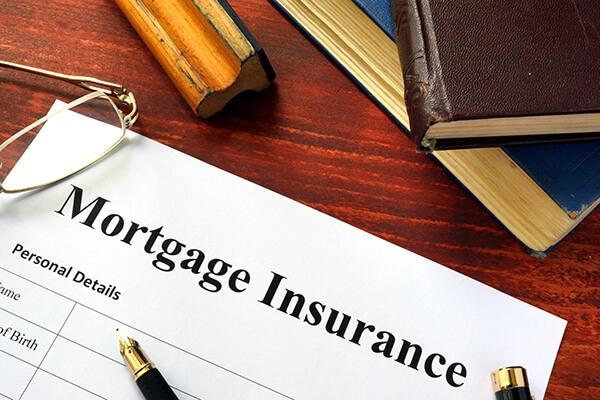
If your down payment is less than 20% of the selling price, mortgage insurance from Genworth Financial Canada or the Canada Mortgage and Housing Corporation (CMHC) will be required by your lender.
CMHC insurance does not insure your property or your home, but only the payment of your mortgage.
- It is your lending institution that is responsible for taking steps to obtain this coverage
- The premium of this insurance can be included in your monthly mortgage payments or paid in full at the time of the transfer of the property
- The amount to pay for this CMHC insurance generally ranges from 0.6% to 4% of the total amount borrowed as shown in the table below.
| Loan-to-Value Ratio | CMHC Premium allocated to total |
| 65% or less | 0.60% |
| 75% or less | 1.70% |
| 80% or less | 2.40% |
| 85% or less | 2.80% |
| 90% or less | 3.10% |
| 95% or less | 4.0% |
| Non-conventional down payment | 4.5% |
| 90.01 to 95% |
(Source: CMHC March 2018)
Calculation of CMHC Mortgage insurance premiums
Down payment of 10% = loan-to-value ratio of 90% = 3.10% according to the charter
House of $ 260,000 – down payment of $ 26,000 = $ 234,000 to be paid for the purchase of the house
$234,000 x 3.10% = $7,254 in CMHC mortgage loan insurance
The QST on the CMHC premium
QST on $7,254 = 9.975% x $7,254 = $724
The amount of CMHC Mortgage Loan Insurance (and the inherent QST) will be amortized into the mortgage amount. It will not be part of the incidental cost of buying your home.
Pre-purchase home inspection fee
If you have found the perfect home that you wish to buy, schedule a home inspection first.
Although it is not mandatory, the inspection of the house you wish to buy is strongly recommended.
Once you have submitted the offer to purchase, have a building inspector visually assess the systems and visible components of your home such as structure, plumbing, electricity, roofing, etc.
The pre-purchase inspector will then report in his pre-purchase report any observable defect that may result in a reduction of the real value of your home and make recommendations.
Although the price of a pre-purchase inspection may vary from one city to another and depending on the characteristics of the building (age, size, type of property), this essential step will save you from having to pay thousands of dollars in unexpected costs.
Expenses for a pre-purchase inspection: between $450 and $550.
Fortunately, we have partnered with licensed home inspectors who can help you before you buy a house.
Just fill out the short online form on this page and receive FREE and NO-COMMITMENT quotes from experienced home inspectors in your area.
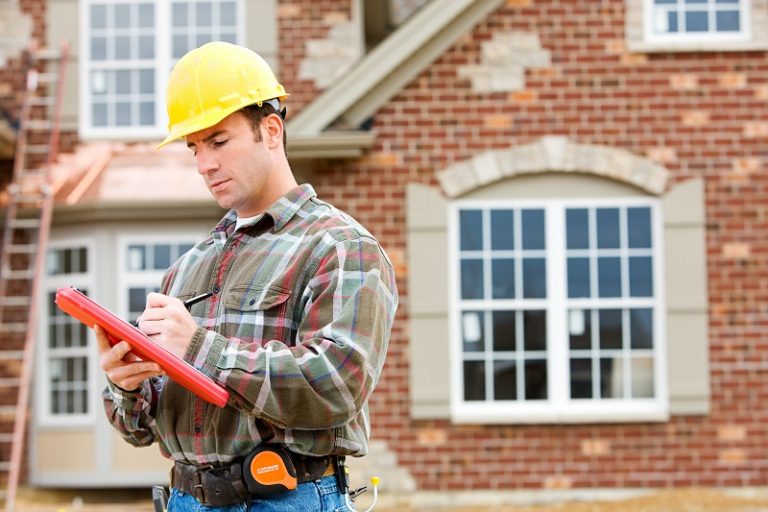
Are you wondering whether you need a pre-purchase home inspection before buying a house are? Read on to get the answers to your questions.
What is a pre-purchase home inspection for?
A pre-purchase home inspection is designed to check the condition of a house based on what the inspector can see inside and outside the home.
While you don’t need it to apply for a mortgage, it will save you from potentially making a big mistake that could cost you thousands of dollars in the future.
Whether you are buying a brand-new house of a 25-year old one, it is always better to do a pre-purchase home inspection. This is true even if your house is covered by the new home warranty in Quebec, Ontario, Alberta, and British Columbia.
The home inspector will inspect the areas that are accessible inside and outside of the property such as ceiling, walls, flooring, foundation, roof, and detached structures. For condo properties, the inspector will also check common areas.
His inspection report will indicate detailed observations about the property, potential defects such as mold, water infiltration, or suspicious odors. He will also include various photos of the property.
How can you find a reliable home inspector?
Our advice is to hire a certified inspection who is a member of a professional organization or charter. This ensures the professional complies with liability insurance requirements and the standards of practice.
The best home inspectors are members of the Ontario Association of Home Inspectors(OAHI) or the Quebec Association of Building Inspectors(AIBQ).
You can easily connect with a qualified and reliable home inspector in your city byfilling out our short online form!
Benefits of a pre-purchase home inspection
Since your home will be a major investment, you must enter into this transaction knowing all of the necessary facts. A pre-purchase inspection will inform you about all the relevant details regarding the property so that you know its actual value and potential risks.
The inspection report will also inform you of any damage or potential losses you can incur from the property, repairs that may be required, and if the selling price is reasonable.
A home inspection report can even help you negotiate the selling price, if necessary.
If your offer to purchase includes a conditional clause for the pre-purchase inspection, you can cancel the offer to buy if the results of the inspection is not good.
You can find a certified inspector to do a home inspection from our network, too. Our partner home inspectors are members of the Quebec Association of Building Inspectors (AIBQ) and the Ontario Association of Home Inspectors (OAHI).
Fees when buying a house: the valuation of your property
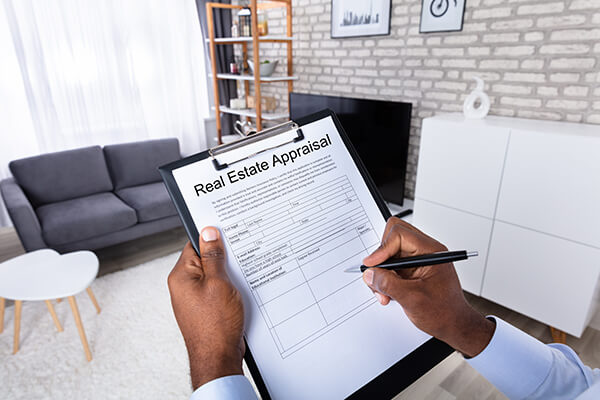
When applying for a mortgage loan, it is possible that the lender wants to know the real value of the house that interests you. You will then have to use the services of a chartered appraiser, who can set it up for you according to the real estate market in your area.
The lender wants to make sure (regardless of your financial means) that the cost of buying your home is reasonable for its value and by the same, the amount of your mortgage.
The average fee for a chartered appraiser is $400.
Benefits of hiring a chartered appraiser for a home purchase
A chartered appraiser is an unbiased professional who will provide an accurate value of the home or property. His opinion will help you make sure you are paying the right price based on the true market value of the home you wish to buy.
Oftentimes, sellers determine their selling price with emotional factors included. Thus, the selling price, without an expert’s assistance, can be set too high.
Your lender will definitely require a home appraisal when you apply for a mortgage as it will base its decision about the loan on the appraisal report. In most cases, it is the lender who will arrange for such appraisal but the mortgage applicant will pay for the fees.
In Quebec, appraisers recognized by the Order of Chartered Appraisers of Quebec(OEAQ) render reliable and impartial evaluations and hold professional liability insurance for the peace of mind of their clients. Appraisers who are recognized for their technical competency by the Appraisal Institute of Canada (AIC)are also recognized as equivalent by the OEAQ.
Don’t be confused with a home inspection and a home appraisal as their purposes are not the same.
The notary fees inherent in the purchase of a house
When the offer to purchase is signed, it is highly unlikely that you will be able to cancel or change any condition whatsoever. The service of a notary is required to avoid unwanted costs such as the transfer in your name debts of the seller or the responsibility for the latter’s mortgage.
The notary can also:
- Advise you on the different modes of financing
- Protect the sums of each party involved in the transaction
- Preserve the interests of each spouse who jointly buys a property
The amount to pay to consult your notary when buying a house
The notary’s consultation fees will vary according to:
- The type of property
- Number of units (if any)
- The number of buyers
- The complexity of your transaction (time invested)
Notary fees, which are usually borne by the buyer, include:
- Title insurance: +$250
- Legal fees: + $650
TOTAL: $900 to $1,000
Your real estate broker will accompany you throughout the entire process of buying your home, especially when signing the deed of purchase as your notary. He will help you through all the steps, for free, as the costs are borne by the seller.
To benefit from the advice and assistance of the best notary in your area, simply fill out the bid solicitation form on this page.
You will receive up to three (3) proposals from the partners of our digital online comparison platform and prices: Compare Home Quotes.
GET 3 FREE QUOTES
Compare prices & products for purchasing a heat pump
Property transfer fees (Welcome tax)
In Quebec, all new property owners must pay the transfer tax.
Created in 1992, this tax was named after Jean Bienvenue, then the Minister of Municipal Affairs who instituted it.
When a building changes hands, the municipality will send the buyer a notice of payment of the Welcome tax within three to six months following the signing of the notarial deed.
This period may vary depending on your city and the time you bought your new home.
The calculation of the cost is based on value brackets, based on the following two amounts: the selling price of the house or the price of the municipal assessment.
The following table shows the principal costs for your property transfer tax.
| Percentage | Value brackets |
| 0.5% | For the first $50,000 |
| 1.0% | On the first portion ranging from $50,000 to $250,000 |
| 1.5% | On the portion from $250,000 and up |
Please note that in Montreal, there is a higher percentage added to their higher tax brackets which means the welcome tax is more compared to other parts of Quebec.
Example of calculating the transfer tax for a $260,000 property
1st tranche of $50,000 = $50,000 x 0.5% = $250
2nd tranche: $250,000 – $50,000 = $200,000 x 1% = $2,000
3rd tranche: $260,000 – $250,000 = $10,000 x 1.5% = $150
The fees to be paid for the transfer tax are therefore:
$ 250 + $2,000 + $150 = $2,400
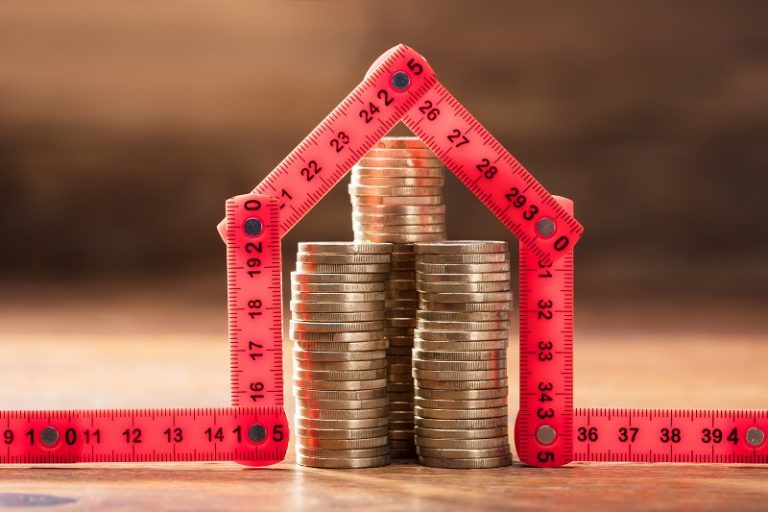 ‘
‘
Calculation of incidental and adjustment expenses
If the seller has paid his municipal and school taxes in advance installments, you must give him, at the time of signing the deed of purchase at the notary, the portion representing the difference between the end of the fiscal year and the time of the transaction. The calculation of this adjustment will be made by the notary.
The same is true for electricity accounts and co-ownership fees (if applicable)
You will also have to add the amount of your 1st tax bill (municipal and school) to the cost of buying your house. Therefore, do not forget to ask the seller or your new municipality of the annual sums to be paid.
You can amortize this amount by adding it to your monthly payments or paying it at one time to mitigate the cost.
In our example, assume that the property tax is $0.89 / $100 of assessment (as is the case in Quebec City):
($260,000 / 100) x 0.89 = $2,314
The cost of the annual fees would be $2,314.
Expenses for insurance
Home insurance: Many financial institutions will ask you to pay the full amount of home insurance for the coming year as soon as your home is purchased.
In our scenario, let’s assume that the home insurance premium is $660 /year for a house valued at $260,000.
Remember to notify your insurance broker of any change in your situation if the value of your personal property or property decreases or increases. The latter will then adjust the amount of your insured property and your insurance premium.
Mortgage life insurance will certainly be offered by your financial institution. You have no obligation to accept it. Take the time to compare with the benefits offered by life insurance to protect your mortgage.
If you buy a life insurance policy for mortgage protection, it will pay for your mortgage balance in the event that you suddenly pass away. The excess amount of your death benefits, if any, will go to your designated beneficiary. This is more advantageous compared to a mortgage insurance sold by a bank wherein the benefits are applied to your mortgage balance and none to your dependents. Bank mortgage insurance policies are only active until your mortgage balance is fully paid.
Title insurance may also be required by your lender and this will be at your expense. Title insurance protects both you and the lender from title fraud, zoning violations, and other property defects. They can be obtained through a real estate lawyer and the cost is added to your legal fees.
Let an independent mortgage broker advise you and search for you the right financial product that will be most profitable for you at the lowest price. You might be surprised!
Summary of costs to be added to the purchase price of your home
| Anticipated Expenses | Total Amount of Fees |
| Fixed charges | |
| Example: $260,000 house | |
| Down payment (10%) | $26,000 |
| Mortgage life insurance (CMHC) | $7,254 not taken into consideration, because amortized in the mortgage) |
| Pre-purchase inspection | +/- $500 |
| Home inspection | +/-$400 |
| Notary fees | +/-$900 |
| QST on mortgage loan insurance | $724 |
| Welcome Tax | $2,400 |
| Calculation of incidental and account adjustment expenses (municipal, school taxes) |
$2,314 |
| Home Insurance | $660 |
| Total anticipated principal costs (excluding the down payment) |
$7,898 |
| Down payment | $26,000 |
| Total expenses to be expected (including the down payment) |
$33,898 |
Other costs to expect for a real estate purchase:
- Soil test, vermiculite or pyrite test …
- If your new home is not connected to a municipal water and sewer system, you will have to charge about $200 for a rigorous analysis:
- the amount of water supplied by your artesian well
- water quality
- septic system
- GST and QST if you buy a house owned by a business or buy a new home
- Construction Permit (as well as plans & quotes as needed)
- Extension
- Interior and exterior repairs
- Interior renovation & painting
- Landscaping…
- Furniture, appliances
- Moving expenses
- Connections to public services: electricity network, Internet, television
- Mail forwarding fee by Canada Post: $54 to $235, depending on the package chosen
- Co-ownership fees (common expenses: snow removal, interior and exterior maintenance …)
- Unplanned: It would be prudent to charge a fee of 2 to 3% of the cost of buying your house to pay for unforeseen expenses.

FAQS about the costs of buying a house
How can I save for the down payment and other expenses for buying a house?
Many people budget their money to pay expenses first. Financial experts recommend trimming the fat, reducing recurring expenses that won’t cause you too much distress (dining out, hair salons, subscriptions, etc.) and putting more in your savings account. You can also set up an automatic transfer from your checking to your savings account after every payday.
You can grow your savings in the right investment account such as GICs or high-interest savings account.
It is also a smart strategy to pay off high-interest debt such as credit cards and cut down on non-essential spending.
Make sure to have a Registered Retirement Savings Plan because it lowers taxable income. You can also access the savings you have to use as a down payment for buying a house.
You can also set up a Tax-Free Savings Account (TFSA) to save for closing costs. You can easily cash out your savings when you need to use it for your home purchase. As of 2021, the maximum amount you can contribute to a TFSA is $6,000.
What programs can help a first-time homebuyer save money?
There are incentives and grants for first-time homebuyers that can help you save serious money. These include:
- RRSP Homebuyers Plan: You can withdraw up to $35,000 or $70,000 (for a couple) to help pay for the down payment. This can be repaid within 15 years, tax-free.
- GST/HST Rebate: Eligible homeowners can reimburse part of the GST/HST tax paid on the purchase price or the cost of a new home construction.
- CMHC First-Time Home Buyer Incentive: Allows qualified homebuyers to reduce their monthly mortgage payments from 5% for the purchase of an existing home and up to 10% for a newly- constructed home.
- Municipal Land Transfer Tax Rebates:Covers up to $4,000 in Ontario together with municipal rebates for homebuyers in Toronto to as much as $4,475.
Is title insurance necessary and how much does it cost?
Title insurance protects you in case of dispute about the land where your property is located and can be obtained with the help of your real estate lawyer. It could cost about $200 but may depend on the insurance provider.
What other expenses do I need to prepare for after closing on the property?
As a new homeowner, you may need to prepare a budget for moving expenses, small repairs, and other incidental expenses such as furniture, appliances, utilities, etc.
How can I calculate the closing costs on my house?
In general, closing costs amount to 3% of the purchase price. If your home costs $200,000, you must prepare about $6,000 for closing fees.
Can we roll the closing costs into a mortgage?
The various miscellaneous fees for purchasing a house are included in closing costs which include property transfer taxes, legal fees, inspection fees, etc. They are paid upfront and are not included in the mortgage. Only the mortgage default insurance can be rolled into the mortgage.
How much tax do you pay for buying a house in Canada?
When buying a house in Canada, you can expect to pay a provincial transfer tax that varies from one province to another but can generally be estimated at 1% for the initial $200,000 and 2% on the remaining cost. Some exemptions may apply for first-time homebuyers.
Do real estate brokers charge a fee for homebuyers?
No, real estate brokers are usually compensated by home sellers by way of a commission for selling the property. Home buyers don’t usually pay a broker for their services unless you choose to buy a house that is being sold directly by the owner who is not offering compensation to agents and brokers.
Do you pay GST for buying a house?
When buying a new home, you will be charged GST which is 5% of the purchase price. It will be included in the contract price. If the house is less than $450,000 and is your primary residence, you may be qualified to a partial rebate. Ask your real estate broker or mortgage broker for more details.
If you have more questions, an experienced real estate broker will be happy to answer them for you or assist you in buying your dream home.
Find the right real estate broker for your transaction using our short online form,
free of charge!
Choose a real estate broker now to calculate the costs for buying a property

Make sure that you are buying a house for the right selling price. Be prepared for all the associated expenses by working with a top real estate broker from our network.
Our partner brokers are knowledgeable and experienced about all the aspects of buying a house. They can introduce you to good properties within your price range and help you calculate the costs of buying a property.
Contact certified real estate brokers, 100% verified and carefully screened, from among the partners of Compare Home Quotes – Real Estate Brokers.
Fill out the online request form on this page without delay to compare and choose the best real estate broker for you.
